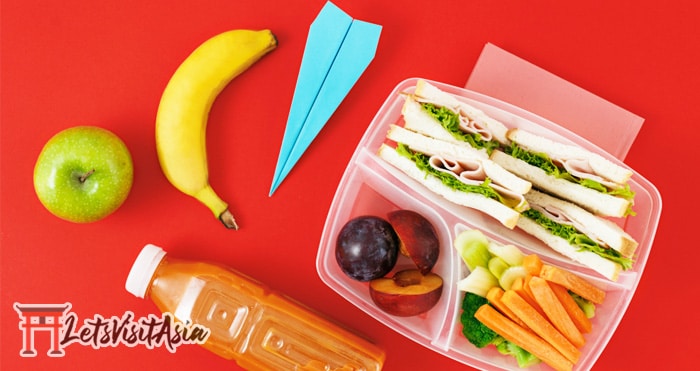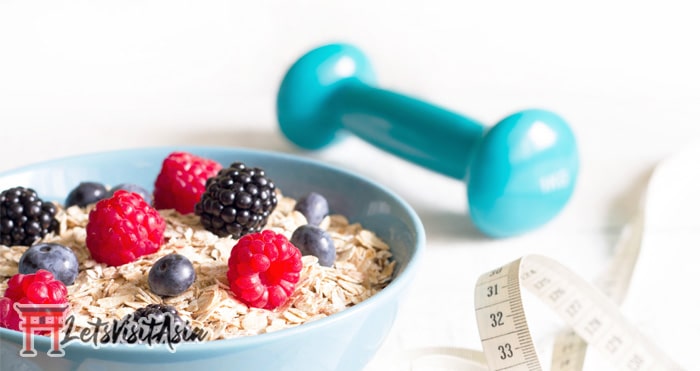Table of Contents
Being able to travel the world is an amazing thing. Flying from one place to the next, trying the local cuisines and indulging in the culture of each country has to offer.
However, one thing that many people may not think about is immune support for traveling.
Giving your immune system a boost to actively try to avoid any form of sickness can be a great idea. So you’re never sidelined in bed when you could be seeing incredible sights instead.
In this article, we’ll be providing you with our best 7 tips to help you do exactly that.
Immune Support for Traveling: Top 5 Tips
1. Take a High Quality Multivitamin for Extra Immune Support for Traveling
Let’s us start with saying that supplements aren’t “magic pills”. They don’t just magically ensure that you won’t be victim to some sickness while on your travels around the world.
That being said, certain supplements (such as a multivitamin) can certainly offer some support to your immune system. To reinforce this statement, we’ll call upon a clinical study (which we’ll detail below).
An MD called Cynthia Aranow [1] conducted scientific research into the link between Vitamin D and the immune system. Ultimately, she found that Vitamin D can indeed play an important role in supporting your immune system. Even going as far as saying that a Vitamin D deficiency can lead to an “increases susceptibility to infection”.
For this reason, we always make sure to travel with a high quality multivitamin supplement that contains adequate Vitamin D dosages.
And that’s without even boring you with the benefits of other vitamins and minerals such as Vitamin C too; if you are as nerdy as us with nutrition, then you may be interested in knowing that studies have shown Vitamin C to help towards immune defense by supporting various cellular functions of your innate and adaptive immune system [2].
Related Posts:
2. Aim to Sleep for at least 7-9 Hours Each Night
When aiming to improve their health, the first thing many people do is start eating vegetables and fruits (and work out in gyms).
While these are indeed beneficial things to do, sleep is massively neglected as a factor that can improve the health and offer additional immune support for traveling.
There have actually been clinical studies published that looked into the link between sleep and your immune system, finding that it does indeed provide great support. Basically, the results stated that sleep deprivation could lead to chronic stress on your body, which as a result negatively impacts your immune functions and general health [3].
In terms of amount of sleep per night, one study concluded that 9 hours is optimal for athletic performance, while at least 7 was necessary for academic performance. The recommended sleep duration in the same study showed that, on average, adults should sleep for at least 7 hours per night (8 hours recommended for teenagers) [4].
However, sometimes sleeping can be difficult when traveling full time. Constantly being in new surroundings is always bound to affect sleep quality.
If you’re interested in traveling with natural sleep aids, check out our article “can you bring melatonin on a plane?”
3. Choose Healthy Food Options for Additional Immune Support for Traveling
One of the reasons why we love traveling Asia (and the rest of the world) so much is to indulge in the local foods. Especially around Asia, this consists of a lot of street food – which isn’t always the “healthiest” options around in terms of salt and fat content, as well as calories.
We’re not telling you to just eat salads while traveling. That would totally ruin all the fun and we couldn’t do this personally ourselves.
That’s assuming that you don’t eat cheeseburgers on a daily basis anyway…If you’re doing that, then it’s absolutely time to rethink your diet!
However, we do recommend eating smaller portions of “cheat meals” (which are more “unhealthy” meals such as Korean fried chicken that you wouldn’t eat everyday) and trying to consume more fruit and vegetables too; alongside taking a multivitamin, consuming fruit and vegetables will also ensure that you obtain enough essential nutrients through your diet.
In many places around the world, especially in Thailand or other places in Asia, it’s super easy to find a street vendor who will happily blend up some fruit and create fresh fruit juices for you. A freshly made fruit juice or smoothie (or a premade green juice from a convenience store) would be a much better snack than a portion of fries.
The bottom line is to try to choose healthy food options where possible, without sacrificing the experience of being in a different country/culture.
For example, if you’re meeting your friends who you’ve been traveling with and have specifically chosen to try some Ramen, then don’t be the only guy eating a salad there. Conversely, if you’re looking for some quick lunch and just want something to eat, then snacking on some fruit would be the better option over a cheeseburger and fries.
Related Posts:
4. Try to Walk Around More or Exercise Frequently
If you’re traveling around for a long time, then you’ll want to get into a nice routine.
Most people in their early days of traveling will neglect exercising and get tempted to eat and drink too much. Without trying to exercise to keep their health levels optimal.
However, one thing you’ll notice with experienced backpackers or full-time digital nomads are that they’ll always find gyms everywhere they stay; just watch some of your favorite travel YouTubers and we guarantee they’ll exercise as much as they can when they’re not vlogging.
But why is exercise important when aiming to support your immune system while traveling?
Well, it goes without saying that exercising can boost improve your health. You shouldn’t really need to look at clinical studies to know that is a fact.
We do know that our readers enjoy looking at research and we always try to be as educated/informed as possible. So, an article published in Harvard Medical School Publishing states that “regular exercise is one of the pillars of healthy living”, going on to state that exercise can indeed contribute to a healthy immune system [5].
Related Post:
5. Stay Optimally Hydrated While Traveling
We love staying in hostels and meeting new peoples. And of course, having many alcoholic beverages with new backpackers that you meet on the road.
But drinking loads of alcohol can lead to some pretty nasty hangovers in the morning. And hangovers are often made worse by the fact that you’re badly dehydrated in the mornings after drinking a lot of alcohol.
Making sure to drink enough water each day will help ensure that you keep optimally hydrated while traveling; many clinical studies have reinforced the importance of staying hydrated on both short and long-term health [6].
How much water intake is “enough”? That’s a good question and not something that’s easily answered, as water intake will differ for each individual.
It’s commonly accepted that drinking 1.5 liters of water per day is beneficial without any negative side effects. However, some experts state that the 8×8 rule (drinking 8 lots of 8oz glasses of water, which roughly equals 2 liters of water) can be more than what is necessary [7].
As a result, we aim to always drink around 1.5 liters of water daily.
Conclusion: Immune Support for Traveling
There’s never been a more important time to ensure your health is at an optimal level and that your immune system is firing on all cylinders.
In quick summary, some of the things we make sure to do to keep our immune support for traveling firing are; take a quality multivitamin, get a good amount of sleep each night, try to eat healthy and exercise as frequently as possible, and drink at least 1.5 liters of water per day.
Hopefully, we’ve helped you find some great tips on our article here!
References:
-
C Aranow. Vitamin D and the Immune System. J Investig Med. 2011 Aug; 59(6): 881–886.
-
AC Carr. Vitamin C and Immune Function. Nutrients. 2017 Nov 3;9(11):1211. doi: 10.3390/nu9111211.
-
L Besedovsky. Sleep and Immune Function. Pflugers Arch. 2012 Jan; 463(1): 121–137.
-
JP Chaput. Sleeping hours: what is the ideal number and how does age impact this? Nat Sci Sleep. 2018; 10: 421–430.
-
Harvard Medical School Publishing. How to Boost your Immune System. Published 2014 Sep.
-
BM Popkin. Water, Hydration and Health. Nutr Rev. 2010 Aug; 68(8): 439–458.
-
S Tsindos. What drove us to drink 2 litres of water a day? AU & NZ J Pub Health; Volume 36, Issue 3: 2012 Jun, 205-207.



